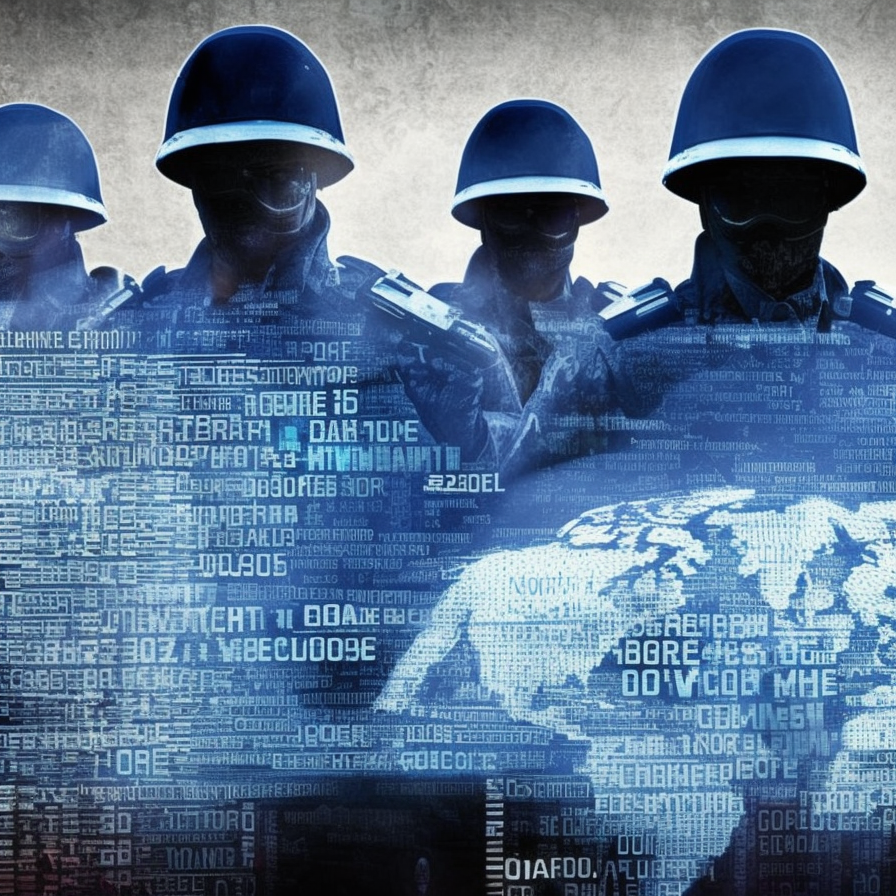As our digital world expands, so does the risk of cyber warfare, posing significant challenges to countries across the globe.
This article explores how nations are at cyber war, the consequences of these digital skirmishes, and potential methods to mitigate their impact.
Understanding the Cyber Combat Zone
Cyber warfare encompasses digital attacks aimed at a country’s computer systems, networks, and infrastructure.
The primary goals of these attacks include:
- Acquiring confidential data: Gaining access to sensitive information such as military plans and trade secrets can give attackers a strategic edge.
- Sabotaging vital infrastructure: Attacking power grids, communication systems, and transportation networks can create widespread chaos and hinder a nation’s ability to respond effectively.
- Spreading propaganda and disinformation: Disseminating false information and manipulating public opinion can destabilize a country and undermine trust in its institutions.
Techniques Employed in Cyber Warfare
Nations engaged in cyber warfare utilize various strategies, including:
- Digital espionage: State-sponsored hackers infiltrate computer systems to steal sensitive information and gain a competitive advantage.
- Distributed Denial of Service (DDoS) attacks: These attacks overwhelm targeted systems with excessive traffic, causing them to crash and become inoperable.
- Malware: Malicious software like viruses and ransomware can compromise a nation’s computer systems, exfiltrate data, or provoke widespread disruption.
- Phishing attacks: Cybercriminals employ deceptive methods to trick individuals into revealing sensitive data or downloading malware.
The Worldwide Repercussions of Cyber Warfare
The rising prevalence of cyber warfare has led to substantial consequences on a global level:
- Economic fallout: Cyberattacks can result in financial losses for the targeted nation and the global economy. For instance, the 2017 WannaCry ransomware attack affected organizations worldwide and led to an estimated $4 billion in losses.
- Political implications: As cyberattacks grow more advanced, the potential for political repercussions increases. Accusations of election interference and state-sponsored hacking can strain diplomatic ties between countries.
- National security risks: Cyber warfare can expose a nation’s vulnerabilities and compromise its ability to defend itself, both in the digital and physical realms.
A Prominent Example: Stuxnet
Stuxnet, which targeted Iran’s nuclear facilities in 2010, is a notable example of cyber warfare.
Believed to have been developed by the US and Israel, the malware inflicted substantial damage on Iran’s nuclear program by disrupting the centrifuges used for uranium enrichment.
Strategies to Counter Cyber Warfare
To safeguard themselves from the growing threat of cyber warfare, nations must adopt comprehensive approaches that focus on the following aspects:
- Bolster cybersecurity: By investing in strong cybersecurity measures, nations can better protect their critical infrastructure and sensitive data.
- Encourage international collaboration: Establishing international norms and agreements can help set clear rules for engagement in cyberspace and promote cooperation among nations to combat cyber threats.
- Build cyber resilience: Prioritizing effective incident response plans and investing in the training of cybersecurity professionals can ensure rapid recovery from cyberattacks.
- Increase public awareness: Educating the public about cyber warfare risks and promoting safe online behavior can contribute to a more secure digital environment.
The Evolution of Cyber Warfare
As technology continues to advance, so will the tactics and strategies utilized in cyber warfare. The growing dependence on artificial intelligence, the Internet of Things, and 5G networks will introduce new vulnerabilities and avenues for cyberattacks. It is essential for nations to stay vigilant and adaptive in order to keep pace with emerging threats.
Artificial Intelligence and its Dual Role in Cyber Warfare
Artificial intelligence (AI) holds the potential to both intensify and alleviate the risks of cyber warfare. AI-driven cyberattacks can be more complex and harder to detect as attackers leverage machine learning algorithms to refine and evolve their tactics. Conversely, AI can also be employed to enhance cybersecurity measures by automating threat detection and response, enabling a quicker and more efficient defense against cyber threats.
Cyber Diplomacy Takes Center Stage
As cyber warfare becomes an increasingly prominent aspect of international relations, effective cyber diplomacy is more critical than ever. Nations must engage in diplomatic efforts to establish norms and agreements that dictate state behavior in cyberspace. By fostering dialogue and collaboration on cybersecurity issues, countries can work together to reduce the risks and potential fallout of cyber warfare.
In Conclusion
Cyber warfare is an urgent global issue that presents significant threats to national security, economic stability, and international relations.
By investing in robust cybersecurity measures, fostering international cooperation, and promoting innovation in the private sector, nations can mitigate the risks associated with cyber warfare and contribute to a more secure digital landscape.
As technology continues to progress, it is crucial for nations to remain vigilant and adaptive in order to stay ahead of emerging threats and safeguard their citizens and interests in an increasingly interconnected world.
